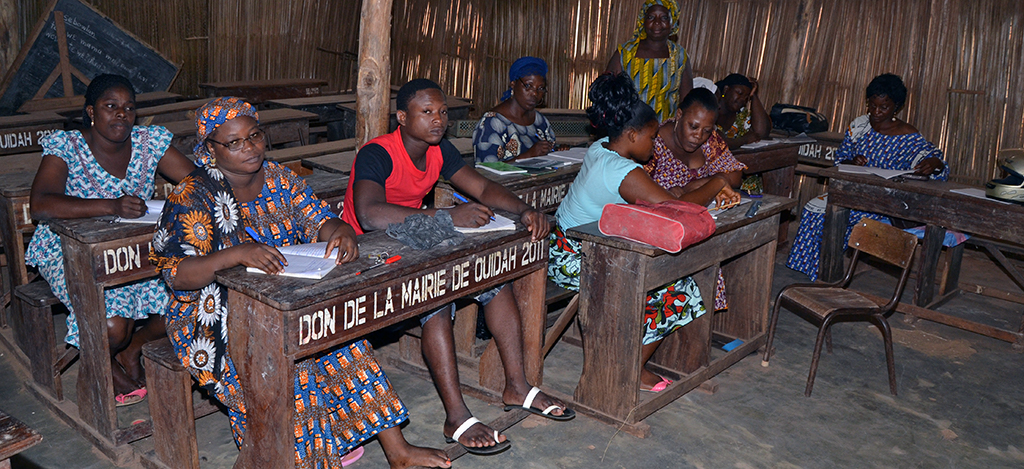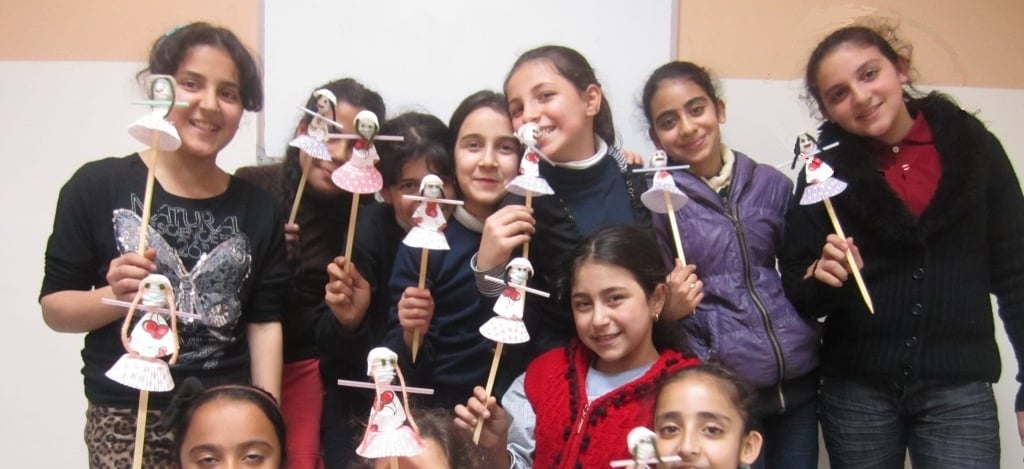Education and vocational qualification
In many countries, girls and women are unable complete their school education or do an apprenticeship. Even with almost equal enrolment rates between girls and boys, the number of girls who drop out of school increases with each school year.
![[Translate to English:] Photo: Ensemble pour la formation des femmes et des filles. Projet de l’organisme « House of Light and Hope » au Liban soutenu par la Journée Mondiale de Prière. © House of Light and Hope [Translate to English:] Photo: Ensemble pour la formation des femmes et des filles. Projet de l’organisme « House of Light and Hope » au Liban soutenu par la Journée Mondiale de Prière. © House of Light and Hope](/fileadmin/user_upload/projekte/themen/webseite_projekte_themen_copyright_house_of_light_and_hope.jpg)
Education is the key
Later on, women are often unable to find paid work and are financially dependent on their husbands or male relatives. Education and vocational training are therefore the key to improving the social position of women and girls. They are necessary prerequisites in order for women and girls to be able to exert influence and stand up for their interests.
Why girls do not go to school (any more)
There are many reasons why girls do not go to school (any more). Girls have to help out in the household more frequently than their brothers. Sexual harassment and violence on the way to and in school and is not uncommon, which is why some parents remove their daughters from school altogether. Teen pregnancies and forced early marriages are also reasons why girls do not finish school.
Female role models wanted
Another, largely underestimated aspect is that there are few female role models. Such so-called role models can be teachers or other women who help shape politics, business and society due to their education or their vocational qualifications.
Investing in education
Investing in the education of girls can counteract the general discrimination against women and girls. There is a proven relation between a higher level of education and lower child and maternal mortality rates and fewer births, a higher level of education for daughters and sons and lower poverty rates.The project work of the Women’s World Day of Prayer is committed to more qualified education for girls and women. This can take place “formally”, e.g., in schools and vocational schools. Or offers may come from the “informal” education sector, such as vocational qualifications without degrees recognised by the government.
The joint projects of the Women’s World Day of Prayer and its partner organisations are conducted in the areas of
- Promoting literacy, schooling and advanced education of girls
- Initiatives that are committed to preventing early “drop-outs” in school and trainings and/or support young mothers in their educational careers
- Informal education, i.e., vocational qualification even if no accredited degrees are possible
- Vocational qualification and training (from computer training to management skills)
- Personal development and training of leaders (“leadership skills”)
- Networking and mutual support of qualified women (“mentoring”)
Example of projects of the Women’s World Day of Prayer on the topic of “Education and vocational qualification” (in German):

Benin

